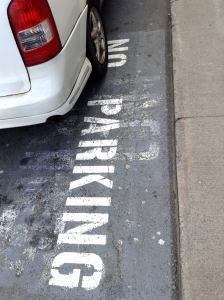Valets seem like they would be in a good position to prevent driving drunk. After all, a valet holds a person’s car keys when that individual goes into many different restaurants, bars and events. When a patron comes back to pick up his car, a valet can see whether the individual is intoxicated and, in theory, could take action to prevent the person from getting behind the wheel while the driver is drunk. 
The reality, however, is that valets do not generally have any type of legal responsibility to stop an intoxicated driver from getting behind the wheel. State drunk driving laws do not generally impose any liability on valets, although dram shop laws in Massachusetts do say that bars and restaurants can be held liable for serving and selling alcohol to visibly intoxicated patrons. A drunk driving injury lawyer can help victims of accidents with intoxicated drivers to determine if a restaurant or bar can be sued after a collision caused by impaired driving.
Since valets don’t sell alcohol, dram shop laws do not hold them accountable for giving the keys to someone who is drunk. In fact, according to the Post Gazette, the laws generally seem to actively discourage valets from taking action to prevent intoxicated driving rather than making it possible for these workers to serve as a line of defense to stop DUIs.
When a valet does identify someone who is impaired, the valet should be encouraged to contact the police and report the patron or otherwise take steps to protect the intoxicated driver and the public.
Valets and Drunk Drivers
Under the law, valets have no legal authority to prevent people from reclaiming their vehicles even if the driver appears to be intoxicated. Valets have no real way to determine if customers are sober and are not expected to take this step. In fact, if a valet wrongfully accused someone of being intoxicated when he wasn’t, then this could potentially provoke a lawsuit. The laws say that a valet has to give back the keys even if he or she is worried about what will happen when the motorist drives away.
In Pennsylvania, a case is pending before the superior court that aims to address the responsibility of valets to stop intoxicated drivers. The case arises out of a driver who was given his car back by a valet attendant who did not offer to call a cab or alert security despite the driver’s obvious intoxication. The driver hit a tractor trailer and the driver, whose blood-alcohol level was .329, was killed. The man’s mother sued but the judge found that there was no law that would have required the valet to do anything to prevent the drunk driving incident.
A Boston City Councilor tried to impose such a duty on valets in Boston in 2012 according to National Public Radio. The City Councilor described valets as the “last line of defense” in stopping someone from getting behind the wheel. However, valets expressed a great deal of concern about putting taking on the job of trying to spot intoxication, especially since valets are often young and have no practical training or experience in identifying who is too drunk to drive.
While imposing an actual legal burden on a valet to prevent intoxicated driving would likely be an unfair obligation for a valet parking attendant, it does seem clear that valets should voluntarily call the police, offer to call a taxi or try to find an alternate ride for someone who seems to be drunk.
Call Jeffrey Glassman Injury Lawyers for a free and confidential appointment — (617) 777-7777.
More Blog Entries:
Weekend DUI Down, Drunk Driving Fatalities Up, Boston Drunk Driving Accident Lawyer Blog, January 15, 2014
 Boston Drunk Driving Accident Lawyer Blog
Boston Drunk Driving Accident Lawyer Blog

